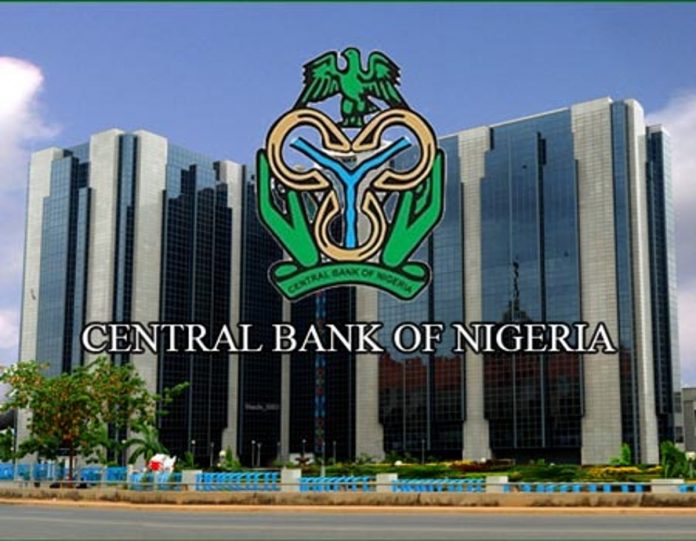By Jeph Ajobaju, Chief Copy Editor
High money market deposit rates compelled by the Central Bank of Nigeria (CBN) are producing tight liquidity in banks as they struggle to comply with a slew of rules cranked out by the regulator to pinch funds for Abuja.
The CBN holds up trillions of naira owned by banks at rates close to zero per cent, and that squeezes cash for withdrawal in bank halls.
This then forces banks to offer institutional customers (pension funds, fund managers, et cetera) and high net worth individuals interest rates as high as 16 per cent per annum for fixed deposits or bank placements.
Nairametrics, which unearthed this in an investigation, describes it as a U-turn compared with the relationship banks had with the CBN four years ago.
In 2017, banks benefitted immensely from a CBN policy that offered them high interest rates for government securities such as treasury bills and OMO bills.
Back then, the CBN utilised the strategy to defend the naira and fund government expenditure, costing it trillions of naira in interest payments to banks.
In 2017 alone, the CBN reported an interest cost of about N1.3 trillion.
The objective of funding government expenditure remains the same, but is now being achieved at a low cost to the CBN by debiting banks through Cash Reserve Ratio (CRR) for just 0.5 per cent on Special Bills.
Implication of CBN policy
According to Nairametrics, the reasons why the CBN does this include the high-wire balancing act to mitigate its competing concerns about how to
· Avoid excess liquidity adding to existing inflationary pressures
· Continuously stimulate the economy to protect jobs
· Keep funding government expenditure and meet all these objectives at the same time avoid paying market interest rates for all funding required
CBN Governor Godwin Emefiele admitted interventions to stimulate the economy and protect jobs. Since the pandemic broke out in early 2020, triggering a fall in oil price, the CBN has ratcheted up heterodox monetary policies it started a year earlier.
A cornerstone of these policies was a different form of liquidity tightening which mandated banks to lend more to the private sector or risk sanction via CRR debits.
The CBN believes private-sector lending can spur economic growth if rates are low and banks are forced to lend more. This is in spite of galloping inflation which it hitherto addressed via increases in monetary policy rates.
Emefiele announced in May that the CBN was keeping rates the same, especially monetary policy rate at 11.5 per cent, but explained its seeming quagmire.
CBN Monetary Policy Committee (MPC) noted that economic growth could be hampered in an environment of unstable prices.
The choice, therefore, was between relaxing policy to ease credit further or tighten it to moderate price or maintain a hold stance to allow previous measures continue to permeate the economy while observing global and domestic developments.
The MPC noted that expansionary policy could reduce pricing of the loans of Deposit Money Banks and result in cheaper credit to the real sector of the economy.
On the converse, as Nairametrics puts it, this expected transmission may be constrained by persisting insecurity and infrastructural deficits.
On the other hand, while a contractionary stance only addresses the monetary component of price development, supply side constraints such as insecurity and infrastructural deficits can only be addressed by policies outside CBN purview.
The MPC sees a tight stance as hampering the objectives of the CBN to provide low-cost credit to households, Micro Small and Medium Enterprises (MSMEs), Agriculture, and other output growth and employment stimulating sectors.
This statement underpins CBN’s strategy of surreptitiously adopting a twin policy of tightening monetary policy and at the same time funding development activities.
It is funding private sector borrowing by extracting money from banks at very low rates and in turn lending this money through intervention loans to businesses at rates of 5 per cent (to rise to 9 per cent in 2022).
In this form of “Shashe Banking” the banks mobilise deposits from customers, which are then sequestered by the CBN and then lent to the private sector via intervention loans. If banks won’t lend, then they will.
Finding themselves on the other end of the stick, commercial banks have no choice but to seek liquidity elsewhere at competitive rates.
Policy defies common sense
Bankers who spoke to Nairametrics on the condition of anonymity think the policy is does not make sense. One analyst lamented that “banks face a liquidity problem because of the CRR debits” which stifle them of cash to meet their obligations.
Some banks have more CRR debits than loans and advances on their balance sheet.
One said this is not really about lending to the private sector but a grand scheme which includes the CBN’s “stubborn exchange rate policy” to keep the naira from depreciating to the detriment of banks and funding government revenue short-fall.
The CBN under Emefiele has relied on liquidity tightening to curb demand for foreign exchange (forex) in the economy.
The Ministry of Finance admitted that Abuja has borrowed over N10 trillion from the CBN via Ways and Means. CBN’s funding of federal and state governments is expedient in the wake of revenue shortfall.
This led to the creation of “Special Bills” as a new government instrument of borrowing.
Special Bills are given to banks in exchange for CRR debits, allowing banks to discount them for cash if they hit a liquidity brick wall. But banks which go this route end up taking a haircut.
Investigation by Nairametrics shows that Special Bills carry a coupon of 0.5 per cent per annum but trade in the market for yields as high as 10 per cent. A bank or investor holding this yield that wants to sell end up with a capital loss on the underlying asset.
This places some banks in a precarious situation requiring they choose between a loss on Special Bills or keep them and borrow via fixed deposits or placements at high yields to meet short term liquidity crunches.
Interbank rates have also risen for banks looking to borrow from each other when they face short liquidity squeezes. Most banks do not want to sell down Special Bills or unwind treasury bills to fix short-term liquidity hassle.
They will rather offer placements.
Thus, to meet liquidity demands, especially from customers looking to withdraw money, banks offer placements from pension funds or high net worth individuals at double digit interest rates.
Cash heavily favoured
This situation favours individuals or institutions with significant cash hoard. Cash yields range from 8 per cent to 16 per cent. Nearly “all commercial banks are on this table,” a banker told Nairametrics.
Microfinance banks and smaller asset managers are also offering “juicy yields” in exchange for cash.
Some use the funds for payday loans, others find themselves in the same soup as commercial banks albeit triggered by higher interest rates on their margin loans instead of CRR debits.
The paradoxical status of Nigeria’s money market leaves a lot of investors flummoxed and perplexed. Treasury bills yields remain in the lower single digits while banks are offering higher yields on fixed deposits or bank placements.
Asset managers with significantly large leverage-backed treasury bill positions are also under pressure to exchange them temporarily for cash under repo programmes.
Just like banks, they are willing to offer their treasury bills security as cash collateral in exchange for interest rates lower than obtains in their banks.
This cash is used to close their positions with banks, while pension funds or institutions with good treasury float receive interest rates on their deposits that are higher than what banks offer.
In this new version of Shashe banking, everyone seems to benefit except the banks.











